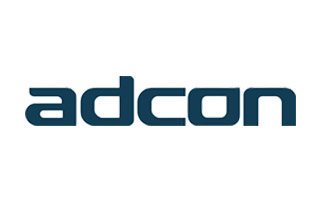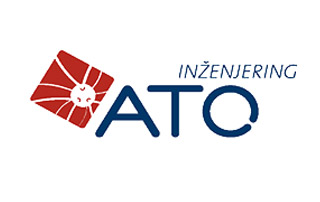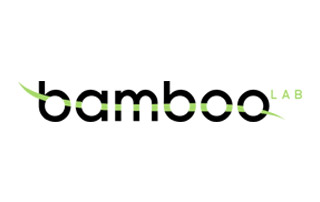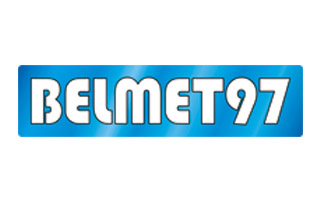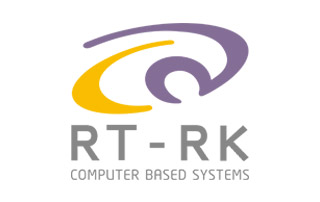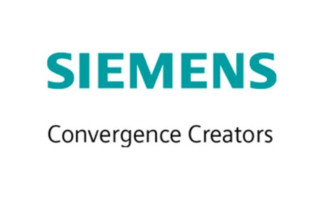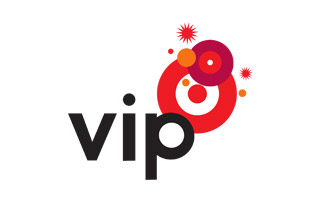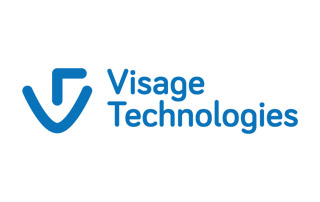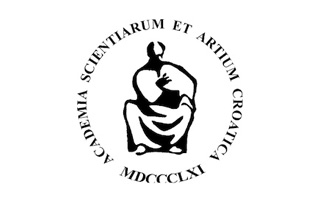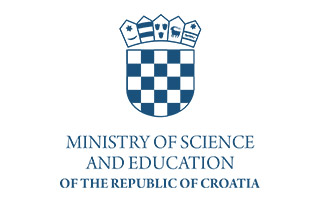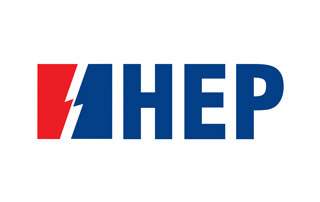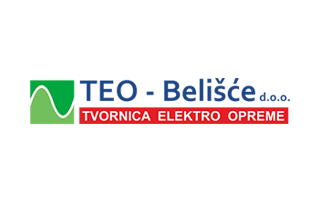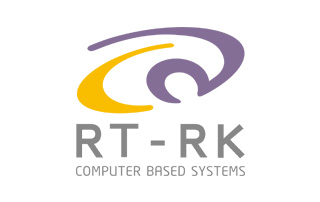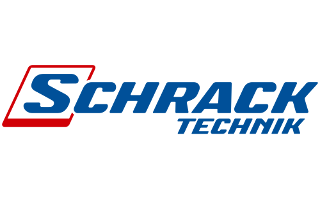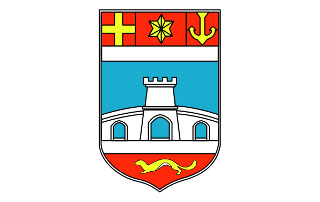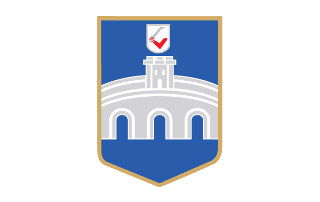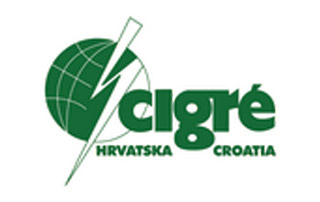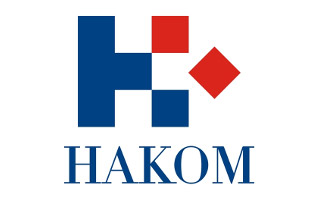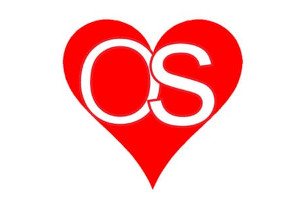
SST2017, October 18-20 2017, FERIT, Osijek
CONFERENCE CHAIRS
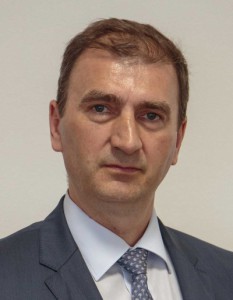
General Chair
Drago Žagar
Faculty of Electrical Engineering, Computer Science and Information Technology Osijek,
Josip Juraj Strossmayer University of Osijek,
Kneza Trpimira 2b, Osijek, Croatia
+38531224602
e-mail:
drago.zagar@ferit.hr
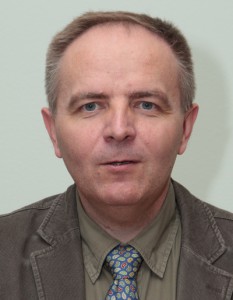
Program Co-Chair
Goran Martinović
Faculty of Electrical Engineering, Computer Science and Information Technology Osijek,
Josip Juraj Strossmayer University of Osijek,
Kneza Trpimira 2b, Osijek, Croatia
+38531495401
e-mail:
goran.martinovic@ferit.hr
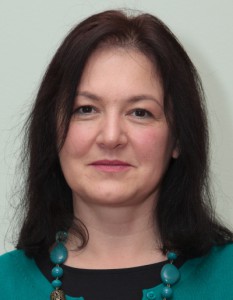
Program Co-Chair
Snježana Rimac Drlje
Faculty of Electrical Engineering, Computer Science and Information Technology Osijek,
Josip Juraj Strossmayer University of Osijek,
Kneza Trpimira 2b, Osijek, Croatia
+38531224 759
e-mail:
rimac@ferit.hr
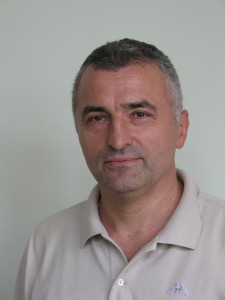
Registration Chair
Dražen Slišković
Faculty of Electrical Engineering, Computer Science and Information Technology Osijek,
Josip Juraj Strossmayer University of Osijek,
Kneza Trpimira 2b, Osijek, Croatia
+38531224602
e-mail:
drazen.sliskovic@ferit.hr
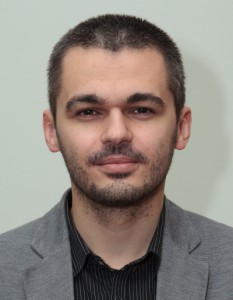
Publication Chair
Kruno Miličević
Faculty of Electrical Engineering, Computer Science and Information Technology Osijek,
Josip Juraj Strossmayer University of Osijek,
Kneza Trpimira 2b, Osijek, Croatia
+38531495401
e-mail:
kruno.milicevic@ferit.hr
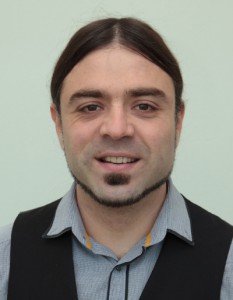
Publicity/Web Chair
Josip Balen
Faculty of Electrical Engineering, Computer Science and Information Technology Osijek,
Josip Juraj Strossmayer University of Osijek,
Kneza Trpimira 2b, Osijek, Croatia
+38531224 759
e-mail:
josip.balen@ferit.hr
STEERING COMMITTEE
Leo Budin
Croatian Academy of Sciences and Arts, Croatia
University of Zagreb, Croatia
Matjaž Colnarič
University of Maribor, Slovenia
Ivica Crnković
Chalmers University, Gothenburg, Sweden
J.J. Strossmayer University of Osijek, Croatia
Bojan Čukić
University of North Carolina at Charlotte, USA
Sven Gotovac
University of Split, Croatia
Mislav Grgić
University of Zagreb, Croatia
Željko Hocenski
J.J. Strossmayer University of Osijek, Croatia
Ignac Lovrek
Croatian Academy of Sciences and Arts, Croatia
University of Zagreb, Croatia
Gabriel-Miro Muntean
Dublin City University, Ireland
Srete Nikolovski
J.J. Strossmayer University of Osijek, Croatia
Igor Papič
University of Ljubljana, Slovenia
Davor Pavuna
École Polytechnique Fédérale de Lausanne (EPFL), Switzerland
Nedjeljko Perić
University of Zagreb, Croatia
Jože Pihler
University of Maribor, Slovenia
Josip Stjepandić
PROSTEP AG, Germany
Andrea M. Tonello
Alpen-Adria-Universität Klagenfurt, Austria
Borut Žalik
University of Maribor, Slovenia
PROGRAM COMMITTEE
Slavoljub Aleksić
University of Niš, Serbia
Adrian Barić
University of Zagreb, Croatia
Marija Boban
University of Split, Croatia
Janez Brest
University of Maribor, Slovenia
Nikša Burum
University of Dubrovnik, Croatia
Robert Cupec
J.J. Strossmayer University of Osijek, Croatia
Zlatko Čović
Subotica Tech, Subotica, Serbia
Gordana Dodig-Crnković
Chalmers University, Sweden
Igor Fürstner
Subotica Tech, Subotica, Serbia
Radoslav Galić
J.J. Strossmayer University of Osijek, Croatia
Tihana Galinac-Grbac
University of Rijeka, Croatia
Francesco Grimaccia
Politecnico di Milano, Italy
Sonja Grgić
University of Zagreb, Croatia
Željko Hederić
J.J. Strossmayer University of Osijek, Croatia
Daniel Hofman
University of Zagreb, Croatia
Darko Huljenić
Ericsson Nikola Tesla, Zagreb, Croatia
Damir Isović
Mälardalen University, Sweden
Franjo Jović
J.J. Strossmayer University of Osijek, Croatia
Georges Kaddoum
LACIME Laboratory, ÉTS Engineering School, University of Québec, Canada
Vladimir Katić
University of Novi Sad, Serbia
Tomislav Kilić
University of Split, Croatia
Tatjana Konjić
University of Tuzla, Bosnia and Herzegovina
Mario Kovač
University of Zagreb, Croatia
Dieter Kraus
Bremen University of Applied Sciences, Germany
Arianit Kurti
Interactive Institute Swedish ICT AB; Linnaeus University, Sweden
Mario Kušek
University of Zagreb, Croatia
Igor Kuzle
University of Zagreb, Croatia
Panos Liatsis
The Petroleum Institute, Abu Dhabi, United Arab Emirates
Dražen Lučić
HAKOM, Croatia
Vlado Majstorović
University of Mostar, Bosnia and Herzegovina
Maja Matijašević
University of Zagreb, Croatia
Peter Möhringer
University of Applied Sciences Würzburg-Schweinfurt, Germany
Marta Mrak
BBC London, United Kingdom
Henry Muccini
University of L’Aquila, Italy
Tomislav Mrčela
J.J. Strossmayer University of Osijek, Croatia
Aljo Mujčić
University of Tuzla, Bosnia and Herzegovina
Ngoc Thanh Nguyen
Wroclaw University of Science and Technology, Poland
Gregor Papa
Jožef Štefan Institute, Ljubljana, Slovenia
Marcin Paprzycki
Systems Research Institute, Polish Academy of Sciences
Edin Pjanić
University of Tuzla, Bosnia and Herzegovina
Vedran Podobnik
University of Zagreb, Croatia
Sasikumar Punnekkat
Birla Institute of Technology & Science, India
Slavko Rupčić
J.J. Strossmayer University of Osijek, Croatia
Hasan Smajić
TH Köln, Germany
Kailash Srivastava
Luleå University of Technology, Sweden
Vlado Sruk
University of Zagreb, Croatia
Željko Stojkić
University of Mostar, Bosnia and Herzegovina
Nermin Suljanović
University of Tuzla, Bosnia and Herzegovina
Zvonimir Šipuš
University of Zagreb, Croatia
Dejan Škvorc
University of Zagreb, Croatia
Damir Šljivac
J.J. Strossmayer University of Osijek, Croatia
Nikola Teslić
University of Novi Sad, Serbia
István Vajda
Óbuda University, Budapest, Hungary
Massimo Villari
University of Messina, Italy
Mladen Vouk
North Carolina State University, USA
Mario Vražić
University of Zagreb, Croatia
Mario Weber
HAKOM, Croatia
Ivan Yatchev
Technical University of Sofia, Bulgaria
Mario Žagar
University of Zagreb, Croatia
KEYNOTE SPEAKERS
Professor Pietro Ducange, Ph.D
SMART Engineering Solutions & Technologies (SMARTEST) Research Centre
eCampus University, Via Isimbardi 10, 22060, Novedrate CO (Italy)
WEB: http://smartest.uniecampus.it/
Email: pietro.ducange@uniecampus.it

Title: Social Sensing and Sentiment Analysis
How to exploit On Line Social Network as information Sources
How to exploit On Line Social Network as information Sources
Abstract: Social network sites, also called micro-blogging services (e.g., Twitter, Facebook, Google+), have spread in recent years, becoming a new kind of real-time information channel. Their popularity stems from the characteristics of portability thanks to several social networks applications for smartphones and tablets, easiness of use, and real-time nature. People intensely use social networks to report (personal or public) real- life events happening around them or simply to express their opinion on a given topic, through a public message. Social networks allow people to create an identity and let them share it in order to build a community. In this talk, we first discuss how social networks and media platforms can be used as sources of information for the detection of events, such as traffic congestion, incidents, natural disasters (earthquakes, storms, fires, etc.), or other events. Then, we show how to extract the “sentiment” hidden behind messages and comments that users post and share on social networks. The users’ sentiment may be exploited for profiling the reputation of commercial activities and brands, for estimating the results of elections or of marketing campaigns, and in general for evaluating the general humor of a community with respect a specific topic.
Keywords: natural language processing, sentiment analysis, social sensing, text mining.
CV: Pietro Ducange received the M.Sc. degree in Computer Engineering and the Ph.D. degree in Information Engineering from the University of Pisa, Pisa, Italy, in 2005 and 2009, respectively. From May 2014, Pietro Ducange has been Associate Professor at the eCampus University. He teaches Computer Architecture, Operating Systems, Artificial Intelligence and Data Mining. He is the Director of the SMART Engineering Solutions & Technologies (SMARTEST) Research Centre and the Coordinator of Business and Computational Intelligence (BCI) research group at the eCampus University. Moreover, since September 2014 prof. Ducange has been adjunct professor at the University of Pisa, where he is also a member of the Data Science and Engineering Laboratory of the Department of Information Engineering. His main research interests include evolutionary fuzzy systems, big data mining, social sensing and sentiment analysis, multi-criteria optimization. Prof. Ducange has been involved in a number of R&D projects, funded by both public or private entities, in which data mining and computation intelligence algorithms have been successfully employed. He has co-authored more than 40 papers in international journals and conference proceedings. Prof. Ducange has served several international conferences as PC member. Currently, he serves the Soft Computing Journal (Springer) as associate editor in the Methodologies & Application area.
Professor Igor Tičar, Ph.D.
University of Maribor, Slovenia
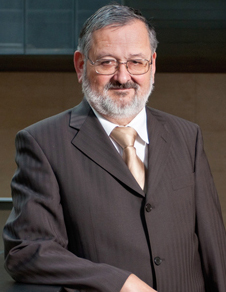
Title: The Future and Perspectives of Engineering Education
Abstract: The study of engineering and natural sciences has been somehow neglected in the last three decades in Slovenia. Here, social sciences and humanities, especially economics and law, have come to the fore. With too many university graduates in these profiles, there has been a shortage of engineers of all kinds. Given a relatively high unemployment rate of graduates in the fields of social sciences and humanities, there is a demand for engineers coming from the economy. It took us several years to turn the studying trends in favour of engineering studies. This was a problem not only in Slovenia, but also in technologically advanced EU countries. They solved the problem (and are still dealing with it) by “importing” experts from other countries, mostly from Eastern Europe.
We have noticed that phenomenon, as you probably have! Today, the percentage of students studying engineering sciences is increasing. Perspectives are good, given the economic growth, which is relatively good – i.e. high. Of course, we must continue to work on the popularisation of study programmes in engineering and natural sciences, even in elementary schools, and on investment in equipment and facilities in polytechnics. At the same time, we have to cooperate with the social and economic environment, which will have to absorb graduates with new knowledge and skills in existing and emerging companies. Only in this case, we will be able to increase both value added and GDP.
Adjunct Associate Professor Darko Huljenić, Ph.D.
Ericsson Nikola Tesla d.d.
Croatia
e-mail: darko.huljenic@ericsson.com
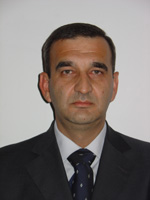
Technical Lecture
Title: Networked Society – Challenges and Opportunities,
Industrial Perspective for Usage and Development
Industrial Perspective for Usage and Development
Abstract: People are connected. Things starts to massively connect. We are living in the networked society and use opportunities of digital dynamics in a physical world. This is paradigm shift for all of us and expect from us culture of participation. The new services will enable personalization, participation and productivity. With ICT support we changes how we live, how we work and what we can produce as new values. With such transformation into networked society we enable everyone to be more inclusive, we make potential to everyone more equitable and empower people.
The presented topic will cover key enablers in the networked society and discuss critical success factors and open opportunities. The focus will be on the software as main technological component of the provided transformation. It will be discussed the role of communication network as enabler of transformation based on 5G specifications. What are the main development challenges in such heterogeneous world?
ORGANIZING COMMITTEE
Dražen Bajer
J.J. Strossmayer University of Osijek, Croatia
Ivan Biondić
J.J. Strossmayer University of Osijek, Croatia
Dario Došen
J.J. Strossmayer University of Osijek, Croatia
Ivanka Ferčec
J.J. Strossmayer University of Osijek, Croatia
Mirela Glavaš
J.J. Strossmayer University of Osijek, Croatia
Mirta Hanzer
J.J. Strossmayer University of Osijek, Croatia
Ivana Hartmann Tolić
J.J. Strossmayer University of Osijek, Croatia
Višnja Križanović Čik
J.J. Strossmayer University of Osijek, Croatia
Jasminka Majdandžić
J.J. Strossmayer University of Osijek, Croatia
Tomislav Matić
J.J. Strossmayer University of Osijek, Croatia
Ana Šokčević
J.J. Strossmayer University of Osijek, Croatia
Davor Vrandečić
J.J. Strossmayer University of Osijek, Croatia
Denis Vranješ
J.J. Strossmayer University of Osijek, Croatia
Domagoj Vuković
J.J. Strossmayer University of Osijek, Croatia
Bruno Zorić
J.J. Strossmayer University of Osijek, Croatia
IMPORTANT DATES
CONFERENCE
31 May, 2017
Conference paper submission
(extended deadline)
12 July, 2017
Notification of conference paper acceptance
1 August, 2017
Final conference paper submission
23 September, 2017
Early registration
SPECIAL SESSION AND WORKSHOP PROPOSALS
1 March, 2017
Workshop and special session proposal submission
15 March, 2017
Workshop and special session proposal acceptance
30 April, 2017
Workshop/special session paper submission
15 June, 2017
Notification of workshop/special session paper acceptance
15 July, 2017
Final paper submission
25 August, 2017
Workshop/special session registration
TOPICS
Topics for submission include but are not limited to:
- Affective Computing
- Agriculture Automation
- Applied Electromagnetics in Smart Systems
- Big Data and Smart Systems
- Biometrics and Smart Systems
- Cloud Computing
- Communication Systems
- Computational Intelligence
- Control Systems and Robotics
- Cyber-Physical Systems
- Dependable Computer Systems
- Embedded Computer Systems
- Green Communication
- Green Computing
- High Performance Computing
- Image and Video Processing
- Intelligent Power Systems and Environments
- Intelligent Transportation Systems
- Internet of Things
- Mobile and Wireless Networks
- Security and Privacy
- Smart Antennas
- Smart Health
- Smart Homes and Cities
- Smart Systems and Technologies in Education
- Smart Systems for Green Energy
- Smart Systems in Business
- Software Engineering for Smart Systems
CEMBEF 2017
International PhD Seminar on Computational Electromagnetics and Bioeffects of Electromagnetic Fields
October 18, 2017
Faculty of Electrical Engineering, Computer Science and Information Technology
Josip Juraj Strossmayer University of Osijek
Osijek, Croatia
Workshop at the
International Conference on Smart Systems and Technologies 2017
(SST 2017)
October 18-20, 2017
Osijek, Croatia
PhD seminar Deadline Extension
We are glad to announce that the period to submit papers to the PhD seminar CEMBEF 2017 has been extended to July 30 2017
VENUE
Faculty of Electrical Engineering, Computer Science and Information Technology Osijek
J.J. Strossmayer University of Osijek
Kneza Trpimira 2b, 31000 Osijek, Croatia
OVERVIEW
Submit paper on topics:
- Applied Electromagnetics in Smart Systems;
- Calculation of Electromagnetic Fields;
- Inverse Electromagnetic Field Problems;
- Tech Optimization;
- Measures Electromagnetic Field Techniques;
- CAD Systems;
- Electromagnetic Compatibility Problems;
- Problems of Coupled Fields: Electromagnetic, Thermal, Mechanical;
- Nonlinear Electromagnetic Systems;
- Biofactors of Electromagnetic Fields;
- Electromagnetic Waves and Systems.
Present to researchers from academia and industry Interact and network with audience
PUBLICATION
Proceedings of full papers
IMPORTANT DATES
July 30, 2017 (extended deadline): Full papers submission
July 30, 2017: Notification of Acceptance
August 30, 2017: Final paper submission
September 15, 2017: PhD seminar registration
GENERAL CHAIR
Hartmut Brauer, Ilmenau, Germany
Željko Hederić, Osijek, Croatia
STEERING COMMITTEE
Ivan Yatchev, Sofia, Bulgaria
Slavoljub Aleksić, Niš, Serbia
Hartmut Brauer, Ilmenau, Germany
Dragan Poljak, Split, Croatia
Nebojša Raičković, Niš, Serbia
Miralem Hadžiselimović, Maribor, Slovenia
Sead Berberović, Zagreb, Croatia
István Vajda, Budapest, Hungary
Neda Pekarić-Nađ, Novi Sad, Serbia
Slavko Rupčić, Osijek, Croatia
Marinko Barukčić, Osijek, Croatia
Nenad Cvetković, Niš, Serbia
Tomislav Barić, Osijek, Croatia
PhD seminar
The PhD seminar will take place at the Faculty of Electrical Engineering, Computer Science and Information Technology Osijek, Kneza Trpimira 2b, 31000 Osijek, Croatia
The PhD seminar provides doctoral students with an opportunity to present their work in the areas of Computational Electromagnetics and Bioeffects of Electromagnetic Fields, and related to the SST 2017 conference topics to a wider community of researchers from academia and industry. The seminar aims to encourage interaction and networking among doctoral students, as well as with the audience.
The PhD seminar will be organized as an oral session. Each student will be given a strictly-timed 10-minutes slot to present her/his research. The purpose is to provide a brief outline of one’s doctoral research work with the goal to raise awareness and generate further discussion over the presentation and coffee break that follows.
Doctoral students are invited to submit a full paper for review and possible inclusion in the PhD seminar program. The papers should be formatted according to the PhD seminar template available at http://sst-conference.org/index.php/cembef-2017/ and submitted electronically before the submission deadline via the on-line submission system. Submitted papers will undergo a peer review process coordinated by the PhD Seminar Program & Organizing Committee. All submissions must be in English. Authors of accepted papers are required to register for the conference and present at the PhD seminar in order to have the paper included in the proceedings of full papers.
For authors of accepted papers, the PhD seminar registration fee is 50 EUR and it includes: 1) PhD seminar participation; 2) Proceedings of full papers (printed version); 3) access to other SST2017 conference sessions; 4) coffee breaks; 5) conference luncheons; 6) City Tour (starts from the hotel Osijek); 7) welcome reception and 8) conference gala dinner (with additional fee of 20 EUR).
For authors (PhD students only) of accepted papers on SST 2017 conference and with another one to the PhD seminar, the registration fee is 130 EUR for both.
INDUSTRY POSTER SESSION
Industry Poster Session at the International Conference on Smart Systems and Technologies 2017 (SST 2017)
CALL FOR PARTICIPATION
Organized by the Faculty of Electrical Engineering, Computer Science and Information Technology, J.J. Strossmayer University of Osijek and Alumni Association of the Faculty of Electrical Engineering, Computer Science and Information Technology Osijek (AMA-FERIT)
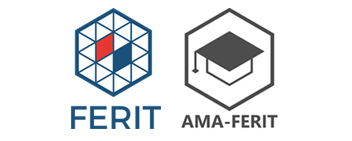
VENUE
Hotel Osijek
Šamačka 4, 31000 Osijek, Croatia
DATE AND TIME
October 19, 2017, 14.30-15.00h
https://www.facebook.com/SSTInternationalConference/
CONTACT
sandra.vdovjak@ferit.hr
tel. 031/224-700
IMPORTANT DATES:
September 29, 2017
Posters submission deadline
October 2, 2017
Notification of acceptance
October 6, 2017
Conference registration
SST 2017 conference will host an Industry Poster Session on Thursday, October 19, 2017 from 14.30-15.00h. The Industry Poster Session will take place at the SST 2017 conference venue – the Hotel Osijek in Osijek, Croatia.
The Industry Poster Session provides an opportunity for companies to present their work in the areas of ICT related to the SST 2017 conference topics to a wider community of researchers from academia and industry. This session aims to encourage interaction and networking among companies and researchers, as well as the audience.
The posters will be on permanent display throughout the conference, which will provide a platform for continuous interaction between the authors and the conference attendees during the course of the conference. Company representatives will be required to attend the posters during the designated time for Industry Poster Session on October 19, 2017. All companies will receive a certificate (gratitude letter) for attending and contributing the SST2017 conference and research community.
The poster should be formatted according to the SST Poster Session template available AT THIS LINK in standard A1 paper size ( 594 x 841 mm, portrait orientation) and submitted electronically before the poster submission deadline via the SST2017 on-line submission system available HERE
To keep within the time limits of SST Industry Poster Session as a whole, the number of SST posters will be limited. All submissions will be reviewed by the SST Industry Session Organizing Committee based on relevance to the conference, innovativeness, and quality of presentation.
The round table will be held on October 20, 2017 from 10:45 – 12:00h on the topic “Knowledge transfer from a faculty to industry” and all company representatives are invited to participate. For authors of accepted posters, the SST Industry Poster Session registration fee is 100 EUR and it includes:
- SST Industry Poster session participation
- Poster printing (A1 size)
- Full access to other SST2017 conference sessions during that day: coffee breaks, conference luncheons, reception
- City Tour
- Conference gala dinner
IPS SESSION CHAIRS
Sandra Vdovjak, AMA-FERIT, ATO Inženjering
Josip Balen, FERIT Osijek
ORGANIZING COMMITTEE
Kresimir Romic, FERIT Osijek
Kresimir Vdovjak, FERIT Osijek
Ivan Vidovic, FERIT Osijek
SST 2017 – DETAILED CONFERENCE PROGRAM
Conference venue: hotel Osijek, Šamačka ul. 4, 31000, Osijek, Croatia
18 October 2017
Greetings
(Room A – Lipa)
9:30 AM – 9:45 AM
General Chair: Professor Drago Žagar, Ph.D.
Modelling and Analysis of Smart Systems
(Room A – Lipa)
9:45 AM – 11:25 AM
Chairs: Željko Hocenski, Gregor Papa
Michal Kvet and Karol Matiaško
Temporal Model Architecture and Operations
Goran Martinović and Igor Novak
A Combined Architecture of Biologically Inspired Approaches to Self-Healing in Embedded Systems
Hanife Apaydin-Ozkan
Petri Net Modelling of Smart Home Appliances
Rok Hribar, Gregor Papa and Jurij Šilc
Prediction of Natural Gas Consumption using Empirical Models
Denis Panxhi, Donald Selmanaj, Matteo Corno, Fabio Todeschini, Sergio Saveresi, Aida Spahiu and Orion Zavalani
Analysis of a Vibrotactile Actuator for Bicycle Handlebars
Smart Energy I
(Room B – Kesten)
9:45 AM – 11:25 AM
Chairs: Srete Nikolovski, Danijel Topić
Zvonimir Perko, Danijel Topić and Jurica Perko
Standardized System for Monitoring and Control of Public Lighting Networks
Davor Vinko, Ivan Pavlović and Karlo Runac
Application of DC-DC Converters in Loosely Coupled Wireless Power Transmission Systems
Dragan Mlakić, Srete Nikolovski and Zoran Baus
Detection of Faults in Electrical Panels Using Deep Learning Method
Hrvoje Glavaš, Marko Vukobratović, Mario Primorac and Daniel Muštran
Infrared Thermography in Inspection of Photovoltaic Panels
Mihajlo Magoč, Krešimir Fekete, Goran Knežević and Danijel Topić
Application of Optimal Power Flow to Power System with Wind Power Plants
Coffee Break
11:25 AM – 11:45 AM
Smart Energy II
(Room A – Lipa)
11:45 AM – 1:05 PM
Chairs: Imad A. Elzein, Zvonimir Klaić
Jelena Vlaović and Goran Horvat
One Implementation of Algorithms used to Increase Energy Efficiency of Premises
Imad A. Elzein, Yury N. Petrenko and Mustapha Kurdi
Deployment of FL Multi Agents in Hybrid Energy Management
Emir Alibašić, Marinko Stojkov and Srete Nikolovski
Distance Protection and Automatic Reclosing on 400 kV Transmission Line with Classic and Compact Towers
Bane Popadić, Boris Dumnić, Vladimir Katić, Damir Šljivac and Denis Pelin
Overview of Grid Connected Converter Synchronization Techniques under Different Grid Voltage Conditions
Wireless Communications and Networks
(Room B – Kesten)
11:45 AM – 1:00 PM
Chairs: Slavko Rupčić, Dejan Škvorc
Dražen Tomić, Goran Martinović and Ante Čuljak
Comparison of QoS Influence to VoIP Traffic into Native and Tunnel Mode IPv6 Networks
Zvonimir Pavlić, Dejan Škvorc and Goran Delač
Message Passing and Event-Driven Communication Models for Tree-Structured Applications
Vanja Mandrić Radivojević, Slavko Rupčić, Nataša Nešić and Viktorija Alilović
The Shielding Effectiveness Measurements of a Rectangular Enclosure Perforated with Slot Aperture
Sarmad Ahmed Shaikh and Andrea M. Tonello
EM Lens-Clustering Based Direction of Arrival Estimation in Massive Antenna Systems
Lunch
(Restaurant)
1:00 PM – 2:00 PM
Smart Information Systems
(Room A – Lipa)
2:00 PM – 3:30 PM
Chairs: Hanife Apaydin-Ozkan, Krešimir Grgić
Davor Cafuta, Ivica Dodig and Vlado Sruk
Spam Detection Based on Search Engine Creditworthiness
Almir Djedović, Emir Žunić and Almir Karabegović
A Combined Process Mining for Improving Business Process
Mostafa Haghi, Kerstin Thurow and Norbert Stoll
A Three-layer Multi-sensor Wearable Device for Physical Environmental Parameters and NO2 Monitoring
Kresimir Grgić, Zoran Kovačević and Višnja Križanović
Performance Analysis of Symmetric Block Cryptosystems on Android Platform
Lovre Mrčela, Andro Merčep, Stjepan Begušić and Zvonko Kostanjčar
Portfolio Optimization using Preference Relation Based on Statistical Arbitrage
Smart Transportation and Internet of Things
(Room A – Lipa)
3:30 PM – 5:10 PM
Chairs: Vlado Sruk, Mario Weber
Srdjan Popić, Dejan Djekanovic and Istvan Papp
Processing Cost in Case of Message Parsing on the Smart IoT Gateway
Henry Muccini, Fabrizio Rossi and Luca Traini
A Smart City run-time planner for multi-site Congestion Management
Mario Muštra, Juraj Fosin and Tonči Carić
Point-Based Estimation of Calculated Speed Profiles for Road Segments
Mario Weber, Dražen Lučić and Ignac Lovrek
Internet of Things Context of the Smart City
Martin Pečar and Gregor Papa
Transportation Problems and their Potential Solutions in Smart Cities
Coffee Break
5:10 PM – 5:30 PM
Computational Intelligence in Smart Systems
(Room A – Lipa)
5:30 PM – 6:45 PM
Chairs: Marinko Barukčić, Francesco Grimaccia
Mirza Sarić, Jasna Hivziefendić and Tatjana Konjić
Distributed Generation Allocation Using Fuzzy Multi Criteria Decision Making Algorithm
Marinko Barukčić, Matej Žgela and Dalibor Buljić
The Python–OpenDSS Co–simulation for the Evolutionary Multiobjective Optimal Allocation of the Single Tuned Passive Power Filters
Francesco Grimaccia, Marco Mussetta, Alessandro Niccolai and Riccardo Zich
Neural Networks as Decision Making Support System for Hydroelectric Power Plant
Vincent Adegoke, Daqing Chen, Ebad Banissi and Safia Barikzai
Prediction of Breast Cancer Survivability using Ensemble Algorithms
Audio, Image and Video Processing I
(Room B – Kesten)
5:30 PM – 6:45 PM
Chairs: Mario Muštra, Mario Vranješ
Desar Shahu, Ilir Shinko, Robert Kodra and Ismail Baxhaku
A Low-cost Mobility Monitoring System for Visually Impaired Users
Tomislav Matić, Ivan Vidović and Željko Hocenski
Face Template Matching for Ink-Jet Printed Biscuit Tiles
Madalina Savu, Dan Popescu and Loretta Ichim
Blood Vessel Segmentation in Eye Fundus Images
Danijel Babić, Matija Pul, Mario Vranješ and Vukota Peković
Real-time Audio and Video Artifacts Detection Tool
7:00 PM – 10:00 PM Welcome Reception
Waldinger Gallery, Fakultetska ul.
(or at 6:00 PM from Tvrđa, Trg Sv. Trojstva to this location)
19 October 2017
Audio, Image and Video Processing II
(Room A – Lipa)
8:30 AM – 9:30 AM
Chairs: Milan Bjelica, Irena Galić
Danica Radović, Marko Čupić, Stefan Stefanović and Dušan Majstorović
Internet Radio Player Implementation using FFmpeg Software Support
Denis Vranješ, Snježana Rimac-Drlje and Mario Vranješ
Influence of Block Size on Motion Vector Estimation Error in Enhancement of Video Temporal Resolution
Jelena Vlaović, Snježana Rimac-Drlje and Goran Horvat
Overview of the QoE-aware Rate Adaptation Algorithms used in MPEG DASH
Smart Educational Systems
(Room B – Kesten)
8:30 AM – 9:30 AM
Chairs: Krešimir Fekete, Denis Pelin
Andrej Brandis and Denis Pelin
Multimedia System for E-learning about Modulation Techniques in Three Phase Voltage Inverters
Clifford Raffaele, Geoffrey Buhagiar, Serengul Smith and Orhan Gemikonakli
Designing a Table-Top Tangible User Interface System for Higher Education
Mario Šipoš and Josip Balen
A Survey of E–learning usage in a Three-dimensional Virtual Environment Second Life
Keynote Lecture 1
(Room A – Lipa)
9:40 AM – 10:40 AM
Professor Pietro Ducange, Ph.D., SMART Engineering Solutions & Technologies (SMARTEST) Research Centre, eCampus University, Novedrate CO, Italy
Social Sensing and Sentiment Analysis: Using Social Media as Useful Information Source
Coffee Break
10:40 AM – 11:00 AM
Opening Ceremony
(Room A – Lipa)
11:00 AM – 11:30 AM
Chairs: Drago Žagar, Goran Martinović, Kruno Miličević, Snježana Rimac Drlje,
Dražen Slišković, Josip Balen
Keynote Lecture 2
(Room A – Lipa)
11:30 AM – 12:30 PM
Professor Igor Tičar, Ph.D., University of Maribor, Slovenia
The Future and Perspectives of Engineering Education
Lunch
12:30 PM – 1:30 PM
Technical Lecture
(Room A – Lipa)
1:30 PM – 2:30 PM
Adjunct Associate Professor Darko Huljenić, Ph.D., Ericsson Nikola Tesla d.d., Croatia
Networked Society – Challenges and Opportunities, Industrial Perspective for Usage and Development
Industrial Poster Session
(Hall – 1st fl.)
2:30 PM – 3:00 PM
Chairs: Josip Balen, Sandra Vdovjak
Coffee Break
2:30 PM – 3:00 PM
Excursion, Gala Dinner and Awards Ceremony
(the bus starts from the hotel Osijek at 3:20 PM and form FERIT, Kneza Trpimira 2b at 3:30)
Location: Đakovo area and Sokak restaurant, Augusta Šenoe 40, Đakovo
3:20 PM – 10:00 PM
20 October 2017
Smart Power Systems and Electrical Drives
(Room A – Lipa)
9:00 AM – 10:20 AM
Chairs: Željko Hederić, Mario Vašak
Mario Vašak, Antonio Starčić, Vinko Lešić and Anita Martinčević
Upgrade of a Typical Office Building Automation System for Enabling Open Energy Management Services
Filip Halak, Tin Benšić and Marinko Barukčić
Induction Motor Variable Inductance Parameter Identification
Željko Hederić, Marinko Barukčić, Tin Benšić, Dejan Barešić and Adamir Jahić
Round Rotational Single Sheet Tester for Rotational Core Loss Measurements
Babak Salamat and Andrea M. Tonello
Altitude and Attitude Tracking of a Quadrotor Helicopter UAV Using a Novel Evolutionary Feedback Controller
Coffee Break
10:20 AM – 10:45 AM
Round Table (in Croatian)
(Room A – Lipa)
10:45 AM – 12:00 AM
Obrazovanje inženjera u suradnji s gospodarstvom (Engineering Education in Cooperation with the Industry)
Closing Ceremony
(Room A – Lipa)
12:15 PM – 1:00 PM
Light Lunch
VENUE
The conference will take place at the Hotel Osijek, located in the centre of Osijek on the Drava river (http://www.hotelosijek.hr/en/).
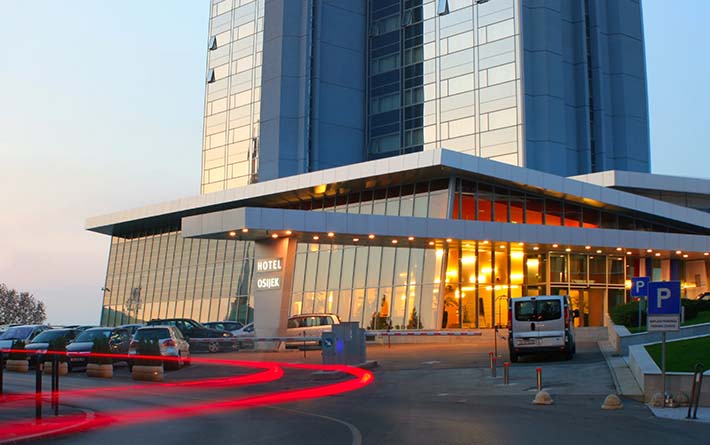

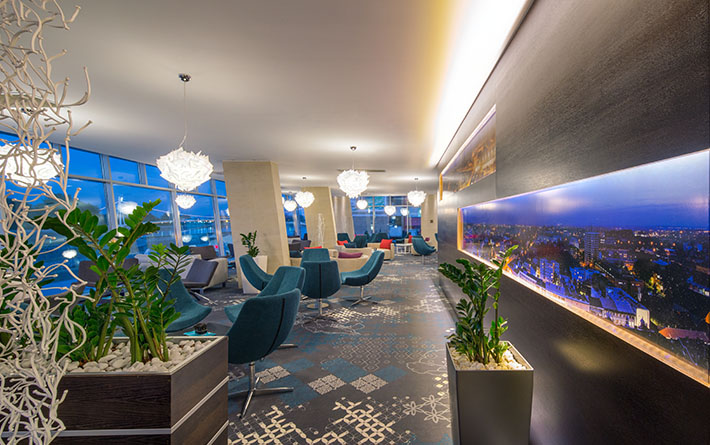
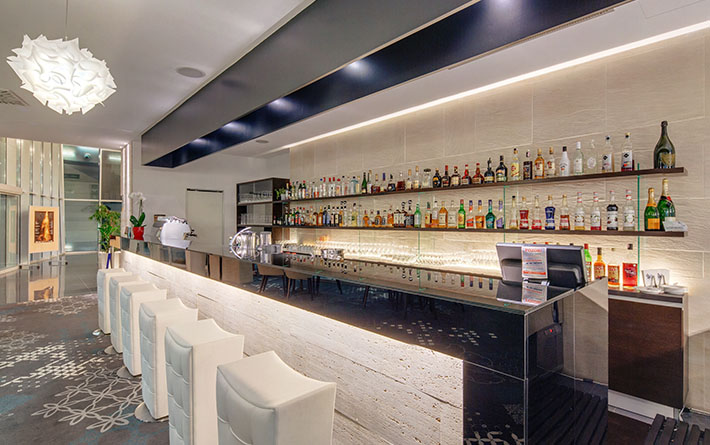
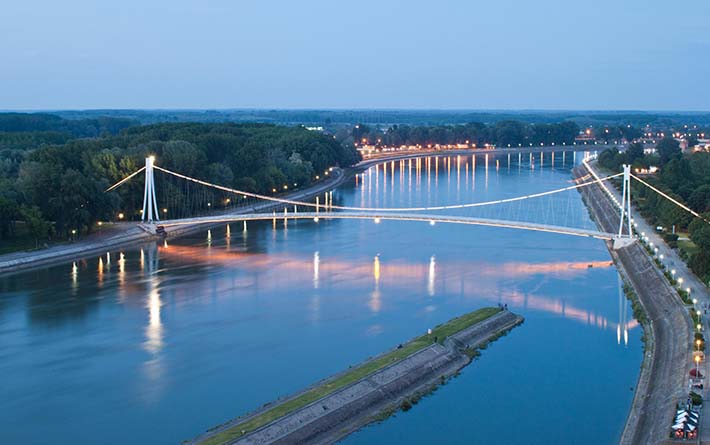
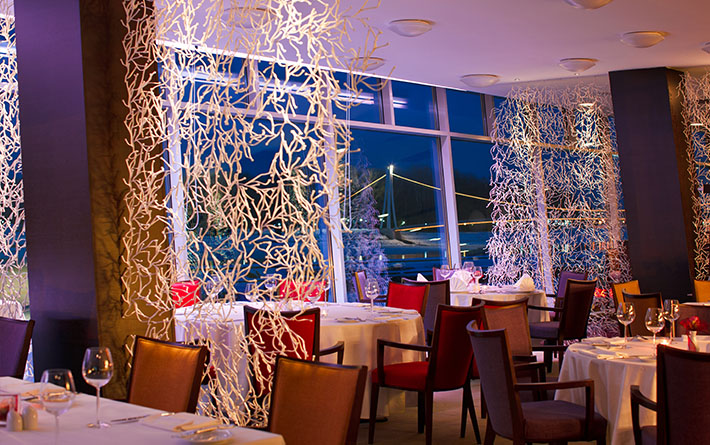
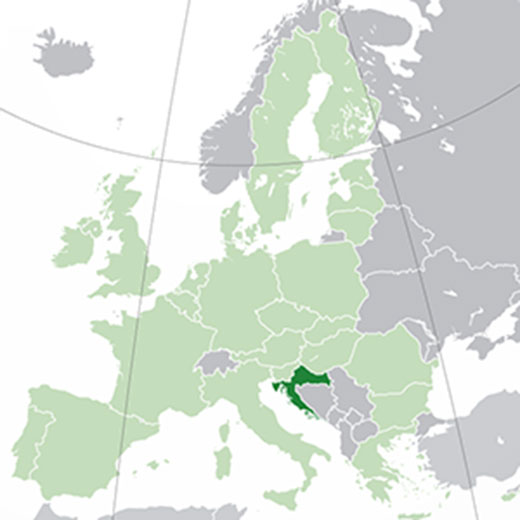
The Republic of Croatia is geographically located between Central and Eastern Europe. It covers the geographical area that extends from the spacious Pannonian Plain across a narrow area of the Dinaric Alps to the Adriatic coast – one of the most indented coastlines in the world. The interior of the country has a moderate continental climate, whereas a pleasant Mediterranean climate prevails along the Adriatic coast.

Slavonia and Baranja is a historical region in eastern Croatia. It is surrounded by three rivers; the Sava River (the border with Bosnia and Herzegovina), the Drava River (the border with Hungary) and the Danube (the border with Serbia), forming an area of exceptional beauty with forests, meadows and hills. In Slavonia, there are numerous castles and villas that once belonged to rich families, but now they add a special charm to this part of Croatia. Baranja stretches between the Drava River in the north and the Danube in the east. At the point where the Danube and the Drava River meet, nature has created a remarkable phenomenon – Kopački Rit Nature Park, which is rich in flora and fauna. In 1967, Kopački Rit and its immediate area were declared a nature park and a zoological reserve, respectively.

The largest city in Slavonia, Osijek, which is located on the Drava River, is an interesting tourist destination with numerous parks, cultural monuments and entertainment possibilities. Osijek is the fourth largest city in the Republic of Croatia with about 110,000 inhabitants. It is located in a valley on the right bank of the Drava River. It consists of the Fortress – a baroque city-fortress built in the 18th century, the Upper, the Lower and the New Town, Retfala and the Industrial District. Osijek is the most verdant city in the Republic of Croatia. The 18th century baroque city-fortress of Osijek was built by transforming the then historic city located at the strategic crossing over the Drava River. The first new city-fortress was built within a large strategic system of fortified baroque towns on the border with the Ottoman Empire, which was founded by Prince Eugene of Savoy who began to build it in 1712. The fortress had four gates: The New Gate (south), the Water Gate (north), the Imperial Gate (east) and Valpovo Gate (west). Out of these four gates to the fortress, only one is still present today – the Water Gate, where there is a memorial plaque dedicated to the builder of Osijek fortress, general Stephan von Beckers. It is believed that his body was walled up in the outer wall or rampart.
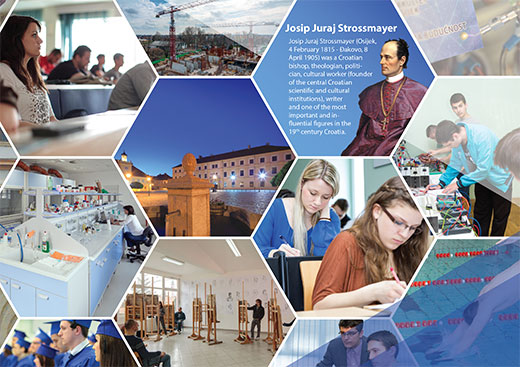
Josip Juraj Strossmayer University of Osijek was established in 1975. It consists of 17 constituent units, i.e., 11 faculties, 5 University departments, 1 Academy of Arts and 3 university infrastructure institutions, i.e., the City and University Library in Osijek, the Student Center in Osijek and the Student Center in Slavonski Brod, as well as the Technology Development Center Osijek Ltd. Today, Josip Juraj Strossmayer University of Osijek has 1,458 employees and about 20,000 students with almost 2,000 students studying at the Faculty of Electrical Engineering. Each year, the number of incoming students doing their practical training and scientists conducting research has been increasing in both the University and the Faculty of Electrical Engineering.
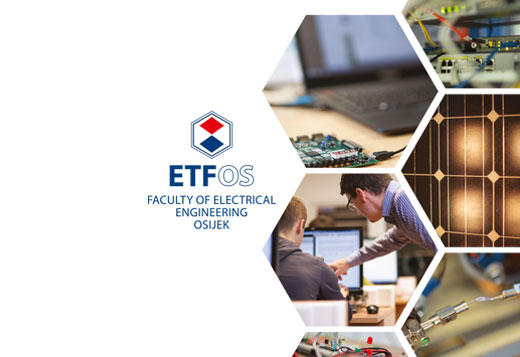
The Faculty of Electrical Engineering, Computer Science and Information Technology in Osijek is a higher education, scientific and research institution that conducts scientific, research, development and educational projects and performs undergraduate, graduate, postgraduate and professional study programs in technical sciences. Higher education curriculum in electrical engineering was first established in Osijek in 1978 as the third study of the kind in the Republic of Croatia. The establishment of the Study of Electromechanical Engineering resulted from an initiative of the University of Osijek and took place in 1977 and 1978.
It was supported by the economy of the city of Osijek and surrounding municipalities in the Slavonia and Baranja region. In 1993, the Faculty of Electrical Engineering Osijek (ETFOS) was founded as a public institution of higher education. Today, it is organized in six departments with a total of fifteen chairs and two accredited laboratories. Through its university and professional study programs, the Faculty of Electrical Engineering, Computer Science and Information Technology in Osijek has been educating and training its staff to be able to keep up with technology advances in the areas of electrical and computer engineering as well as to apply their knowledge to engineering problem solving and, through direct cooperation with industry, to transfer knowledge of new technologies based on new scientific findings. Study programs are in line with European and global trends, but also adapted to the needs of the economy in the environment.
The Faculty of Electrical Engineering, Computer Science and Information Technology in Osijek is also a regional scientific and research center of excellence in the areas of electrical and computer engineering.
SPONSORS, DONORS AND SUPPORT
CONFERENCE DONORS
AWARDS
Best Conference Paper Award

Computational Intelligence in
Smart Systems
Mirza Šarić, Jasna Hivziefendić
and Tatjana Konjić
Distributed Generation Allocation Using Fuzzy Multi Criteria Decision Making Algorithm

Computational Intelligence in
Smart Systems
Francesco Grimaccia, Marco Mussetta,
Alessandro Niccolai and Riccardo E. Zich
Neural Networks as Decision Making Support System for Hydroelectric Power Plant

Smart Information
Systems
Lovre Mrčela, Andro Merćep, Stjepan Begušić
and Zvonko Kostanjčar
Portfolio Optimization using Preference Relation based on Statistical Arbitrage

